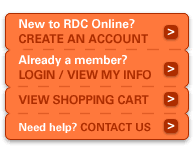See how successful companies are using relationship "rules" to build loyalty:
- A membership-based insurance company provided an auto policy to a newly graduated 22-year-old with a fast Corvette. Bad business decision? No, this graduate was the son of a customer who had a stellar driving record. The company knew that the Corvette was a graduation gift-a classic car in mint condition. Research showed that the company was on track to become an integral part of the young person's life. He would have life insurance by the age of 25, home insurance by the age of 30, and the company saw a boat insurance policy in his future. (Other members of his extended family had secured a boat on a nearby lake right around the age of 35.) By 40, he would be ready to do some serious financial planning. The company learned that he, unlike his father, preferred to get all his statements electronically. Knowing he was online, the company asked permission to send relevant offers to him on his desktop. It followed up with information timed just right-information that answered his questions before he even had to ask them.
- A software company opened up a part of its Web site to allow "techies" to communicate with each other to solve problems or develop new applications for its products. The company asked permission to use the information to help other customers. Each day, the company monitored the informal communication on the Web site, wordsmithed the solutions and ideas, and posted them online-available for other customers to access. Customers felt good about this involvement and a strong community was formed with both the company and its customers benefiting from the interaction. The customers contributed to the evolution of new products and features, bought into new releases much faster, and became strong advocates for new products and services releases because they had input into their development.
- When a film company wanted to discover the context of its customers' lives, it went into community chat rooms and found that many people were talking about children's self-esteem. To feed into this concern, this life context, the company suggested improving children's images of themselves by teaching them photography and taking pictures of them at moments of achievement. The company understood that the customers were not in the market for film, they were in the market to boost their children's self-esteem.
A company can "overspend" on CRM when it hasn't figured out what market segments to really focus on and when the company is trying to "be everything to everybody". The company is then making decisions that are not fiscally responsible - they will not get a good return on their investment.
